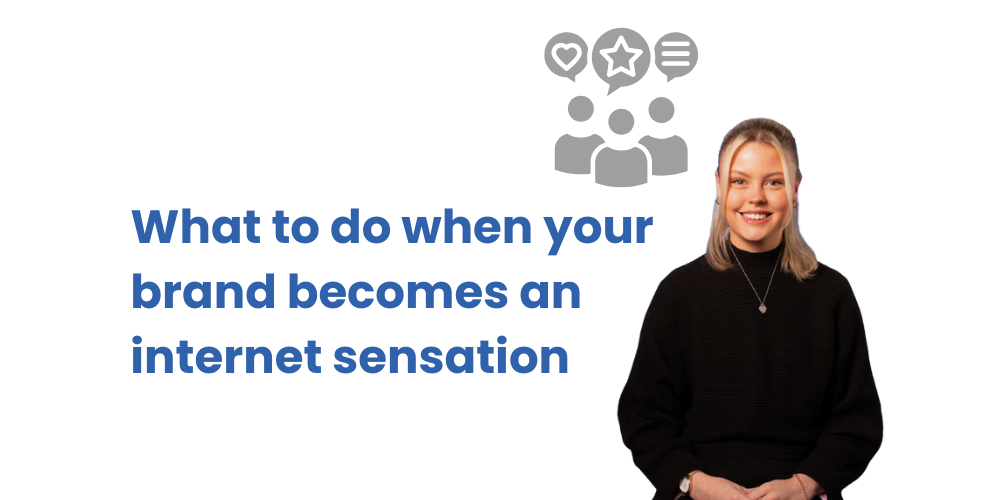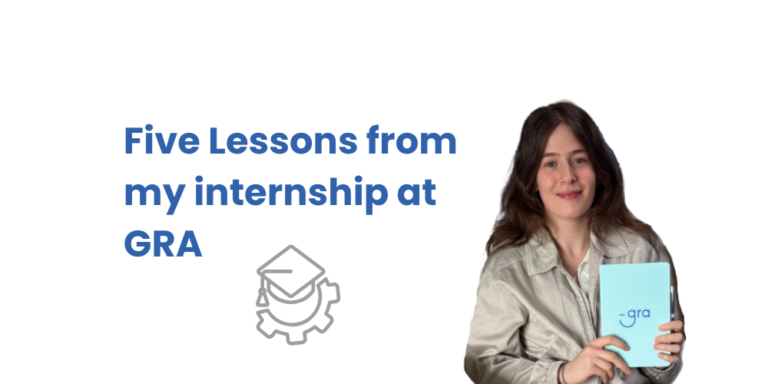Ever since Jet2 bought the rights to Jess Glyne’s song ‘Hold My Hand’ and paired it with the tagline “Nothing Beats a Jet2 Holiday” the clip has gone viral – but not in the way they’d intended. The soundbite quickly took a turn, with people parodying it on social media by combining it with short videos of travel mishaps and general misery. And just like that, Jet2 lost all creative control over how their ad was being used and the connotations it evoked. What started as a brand’s attempt to boost their summer holiday sales, has ended up as a viral internet joke, now spun into a trend where social media users share the very worst bits of their summer holiday – exactly the opposite of what they were trying to do.
So, what should a brand do when the internet takes the wheel and uses their creative in a negative way? Read on to find out.
The stark reality of your brand ‘going viral’
On the surface, it’s what every business wants – having millions of eyes on your brand and even engagement from celebrities! (Mariah Carey and Jeff Goldblum are among those who joined in on the Jet2 trend.) When you work in PR & Marketing you often get asked by clients to make a campaign “go viral” – but when it happens, is a viral ad all it’s made out to be?
The stark reality is, once you go viral, you lose control of the narrative and the context.
Is there a way to stop your campaign being influenced by the internet?
In short, you can’t. If you become part of popular culture (whether as a person, brand, piece of art, or viral moment) you have to accept that people will reinterpret, parody, remix, or change the context of your work in ways you can’t control because we live in such an online world.
As marketers, we’re already wrestling with multiple rounds of approvals and rigid brand guidelines which can often lead to the watering down of ideas. It’s a delicate balancing act: if you play it too safe with your creative, you risk not connecting with your audience. But on the flipside, being too bold puts your head above the parapet leaving your creative at risk of being highjacked and twisted into the very thing those rounds of amends were sworn to protect…
So, should you play it safe to avoid your ads being taken for a ride?
Playing it safe won’t necessarily stop internet culture from reshaping your work and warping it into something unrecognisable. In fact, safe, generic campaigns are often the easiest targets for meme culture because they leave a blank canvas for others to impose their own meaning.
If you’re going to be remixed anyway, you might as well create something bold enough to grab attention on your own terms.
What should you do if your creative does get spun into something it wasn’t intended for?
You’ve decided on your creative, you’re sticking to your guns and you roll out your campaign. It enters the zeitgeist and takes on a life of its own thanks to internet culture chewing up your ‘big idea’ and spitting it back out into something that would probably make your creative director nauseous. So, what should you do?
Sit back, let it run its course and when the time is right – consider seizing the moment, you might just be able to flip the odds and get in on the joke yourself. Brands that don’t take themselves too seriously are often welcomed by the masses.
And remember, you won’t be going viral forever. Recent data shows that trends burn out within 3-5 days online so it’s safe to say that virility does have its peaks. And before you know it, the latest trend becomes old news, only to be replaced by the next big thing that comes along to capture everyone’s attention.
All publicity is good publicity?
Not everyone agrees with the statement “all publicity is good publicity”, but the phrase does have a point. If you’re thinking about holidays this summer, Jet2 Holidays are probably front of mind due to the tagline being everywhere on user-generated TikToks and Reels.
It would be remiss of me to write this article and not nod to a recent example of a company that took the reins back from the internet (albeit for something that wasn’t related to a creative concept being reinterpreted). Of course I’m talking about the company Astronomer, who took advantage of what could have been a reputationally damaging moment when footage of their CEO and Head of HR were caught canoodling (and then freaking out) at a Coldplay concert creating a viral kiss-cam moment. In response to Astronomer’s sudden virality and online commentary, the company boldly spun this into something that put the focus back on the business. They cleverly recruited Gwyneth Paltrow (Chris Martin’s ex-wife) to star in a humorous promo video to reclaim control of the narrative and spotlight the company’s tech credentials. With millions of eyeballs on their firm, they used it as an exercise in educating the public on their offering, putting Astronomer on the map for more than just ‘Coldplaygate’.
Conclusion
So perhaps Jet2 are missing an opportunity to accept the joke and join in on the narrative. Ultimately you can’t stop the internet from taking your ad for a spin, but you can choose how you respond.
If the internet’s going to remix you anyway, you might as well create something that you’re proud of and willing to stand by even if the idea ends up parodied across social media. And if it does spin off in directions you weren’t anticipating, find out if there’s a way you can own it, play along, even flip it on its head.
In the age of remix culture, the real win isn’t avoiding the joke – it’s taking the reins and becoming the one telling it.





